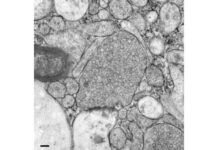A blood test can likely help identify the risk of stillbirth and placentitis in pregnant women infected with COVID-19.
While the SARS-CoV-2 virus can affect people of all ages, pregnant individuals remain one of the highest risk groups. Several studies state that people who contract COVID-19 during pregnancy have an increased risk of preterm birth, stillbirth, placentitis, and other complications. However, predicting these complications in advance is not always an easy task. Moreover, the risk of stillbirth and placentitis isn’t always linked to the severity of the virus and can also occur with asymptomatic COVID infections. Therefore, researchers at Northwestern Medicine aimed to identify the risk of stillbirth and placentitis in pregnant women infected with COVID-19. The team published findings from their preliminary study in the journal PLACENTA.
We’re laying groundwork for further studies so that in the future, people who are diagnosed with COVID during pregnancy may be able to get a test that will help identify pregnancies that may be at higher risk of stillbirth or fetal distress.
Dr. Leena Mithal, study author
Can Viremia Predict Pregnancy Complications?
Viremia is defined as the presence of viral RNA within the blood. However, it is rare in SARS-CoV-2 infection. Prior to the study, the team of researchers had hypothesized the presence of maternal viremia as a possible marker of COVID placentitis. As part of the study, they analyzed blood samples from COVID positive pregnant women. Six of these patients had placentitis; a further 12 patients without placentitis formed the control group. Of the 6 patients with COVID placentitis, two demonstrated viremia: 1 had a well infant and the other had a stillbirth. Whereas all the control group participants tested negative for viremia.
According to study author Dr. Elisheva Shanes, contact of virus-containing maternal blood with the placenta causes infection in these cells. A COVID positive pregnant woman without placentitis wouldn’t have the virus in the blood. Therefore, the researchers believe that an improved version of their test can likely help with the timely identification of high-risk pregnancies.
It is important to note that cases of stillbirth are more common in unvaccinated patients. Therefore, study authors advise pregnant individuals to receive their complete vaccine doses.
We don’t know why viremia does or doesn’t affect some people, but the vaccine does seem to protect against severe complications.
Dr. Leena Mithal, study author
Reference:
Mithal, L.B., et al. (2022) Low-level SARS-CoV-2 viremia coincident with COVID placentitis and stillbirth. Placenta. doi.org/10.1016/j.placenta.2022.03.003.




